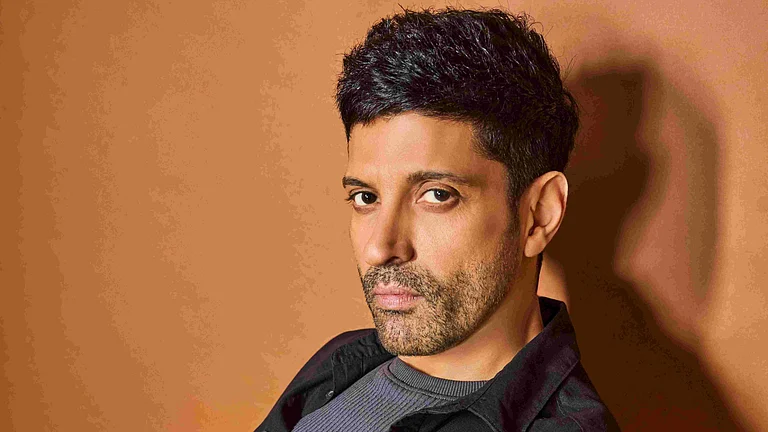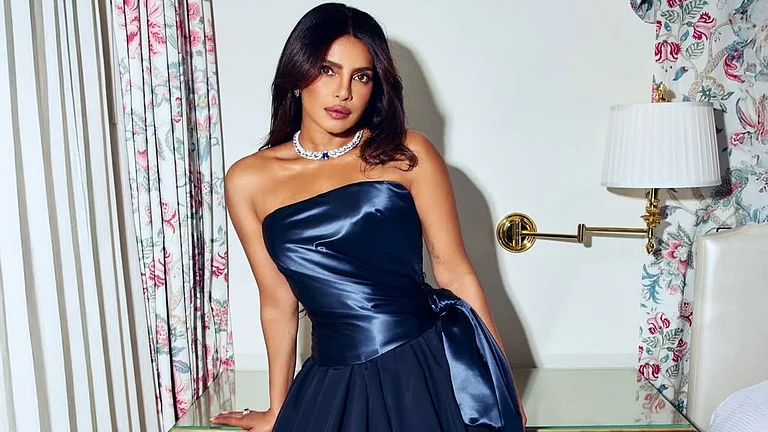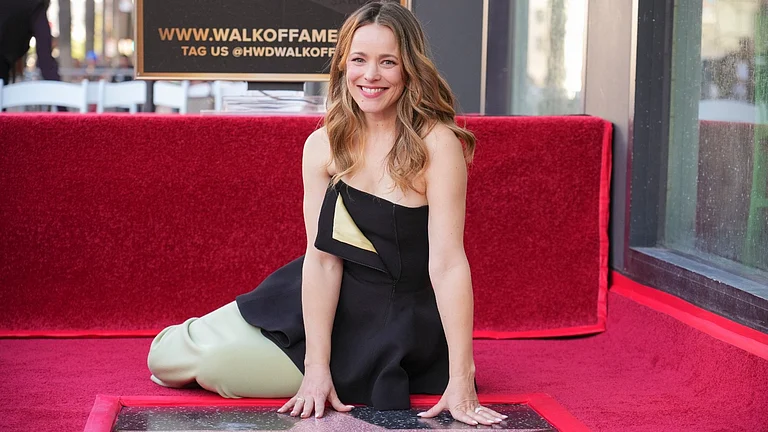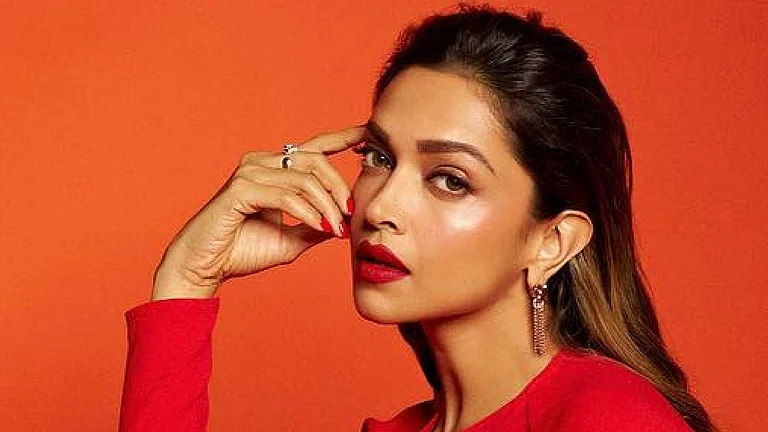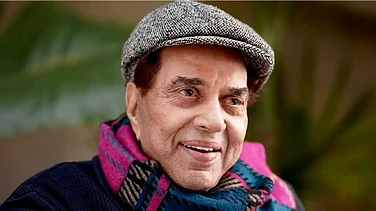Deepika Padukone, one of Indian cinema’s most influential stars, marked her 40th birthday on January 5, 2026. The occasion was quietly celebrated with a surprise gathering organised by her fans, moments from which have been widely shared across social media. Adding purpose to the day, Padukone also unveiled The OnSet Program, a new initiative designed to nurture and empower emerging creative talent.
Most think they know Deepika Padukone—the dimples, the Cannes appearances, her heavily-discussed dating life and her blockbuster hits. But they often miss the larger trajectory: the woman who became a face of mental health advocacy, stood up against misogyny in Bollywood and shaped her public life through respectable boundaries.
At the height of her commercial success, Padukone stood silently at JNU in solidarity with students—composed, unshaken, and politically potent. It wasn’t a spectacle, it was presence. And now, she becomes the first Indian actress to be honoured with a star on the Hollywood Walk of Fame—joining the 2026 class alongside names like Rachel McAdams, Emily Blunt, Timothée Chalamet, and Rami Malek. The rigorous selection process is unpredictable and requires going through hundreds of global names before getting shortlisted. The only Indian actor’s name inscribed before hers was Sabu Dastagir, awarded in 1960. Her inclusion doesn’t just mark a personal career milestone—it reflects a shifting cultural axis, where Indian cinema, especially women, are no longer peripheral to global entertainment, but integral. Padukone’s response to her achievement was characteristically understated—a single-word on her Instagram story : “Gratitude.”

Padukone entered Bollywood in 2007 with Om Shanti Om and she arrived in full spectacle. As Shantipriya, she played dual roles in her very first film alongside Shah Rukh Khan. But her casting was no accident or nepotistic handout. Padukone was already making waves in the modelling world and had featured in Himesh Reshammiya’s music video for Naam Hai Tera (2006), which made her instantly more visible. Farah Khan’s decision to cast her—a first-time actor—as the lead opposite one of India’s most bankable stars was a total gamble, all reliant on her screen appeal and quiet command. The risk proved worthwhile. The film was a commercial success and Padukone was instantly a household name. Her performance was praised for its grace, poise, and expressive vulnerability—qualities rare in a debutante—and her presence signaled the return of a classic femininity imbued with modern edges.
What stands out more is how she navigated the period following her promising debut. Unlike many newcomers who vanish or fall into predictable roles, Padukone faced a challenging start—films like Bachna Ae Haseeno (2008), Chandni Chowk to China (2009), and Karthik Calling Karthik (2010) received varied reactions. She honed her skills by training at acting school, refined her craft, and steadily shifted from a model to a credible actor, eventually becoming a superstar. From then onward, she solidified her position, leading the 2010s with films such as Yeh Jawaani Hai Deewani (2013), Ram Leela (2013), Bajirao Mastani (2015), Piku (2015), Tamasha (2015), Love Aaj Kal (2009), Padmaavat (2018) and Pathaan (2023). Padukone’s breakthrough is notable not for debuting in a blockbuster, but for moving beyond initial gloss and glamour to build something far more grounded, more lasting, and more interior.

Padukone’s public persona is fascinating because it isn’t just built on box-office stardom—it’s a carefully cultivated, paradoxical space of vulnerability and strength, glamour and gravitas, poise and political presence. Her presence at the 2020 JNU protests, as mentioned earlier, was one of the most defining moments of her career—not just for the stand itself, but for the personal cost that ensued. Even as the backlash she faced was severe—including calls for boycotting Chhapaak (2020)—she never expressed any regret for standing with the students. This set her apart in an industry, where silence on politics is often the norm. Beyond this, she has consistently supported LGBTQ+ rights, championed female autonomy, and approached subjects like marriage, motherhood, and identity with honest introspection.
Long before mental health became a popular talking point, Padukone revealed her struggle with clinical depression in 2015—a bold move in an industry that prizes flawless images. She was heavily trolled and mocked, with some accusing her of glamorising mental illness and that depression is only afforded by and is a just “rich person disorder”. Rather than responding in defence, she stood by her statement. Beyond the advocacy, she established lasting programs that train police officers, caregivers, and students in awareness and empathy. It is uncommon to witness a star confront systemic failures so directly, while confidently maintaining her identity as a Bollywood heroine. She doesn’t indulge in online confrontations or media-fuelled outrage, yet she makes sure people know exactly where she stands. During the media frenzy following Sushant Singh Rajput’s unfortunate death, Padukone’s name was dragged into the now-infamous “Bollywood drug nexus” narrative. Despite invasive headlines, she maintained a poised and respectful stance throughout.
Padukone has consistently also asserted that women actors deserve pay parity, firmly stating she won’t collaborate with those who deny her that. Back in 2021, she was ridiculed for demanding equal pay with reference to Sanjay Leela Bhansali’s dream project Baiju Bawra, which has since been shelved. The recent controversy around Sandeep Reddy Vanga, following Padukone’s exit from his upcoming film Spirit, reopened pressing conversations around pay parity, professional dignity for new mothers, and how women characters continue to be written in mainstream cinema. While Vanga took to Twitter to express his disappointment, Padukone, uncharacteristically direct, responded by asserting her awareness of her time, her value, and the clear returns she brings to a project.
Her long-time relationship with actor Ranbir Kapoor—widely covered by the press—was never publicly dissected by her. Even in its aftermath, there were no social media outbursts, no public blame, no performative grief. Whether it’s speculation about her daughter Dua, bizarre commentary on Ranveer Singh’s fashion choices, or relentless paparazzi intrusion—she rarely reacts. And if she does, she retains her grace and dignity. In an industry built on leaks, rumours, and exploiting moments of weakness, knowing how to shield yourself becomes its own kind of survival.
While her box office successes are often celebrated, far less is said about how she has navigated underwhelming outcomes—with poise rather than denial. Films like Lafangey Parindey (2010), Break Ke Baad (2010), Khelein Hum Jee Jaan Sey (2010) and more recently Gehraiyaan (2022), which invited polarised responses, were never disowned. She stood by them, refusing to scapegoat or explain them away. Padukone backed a film like Chhapaak (2020) in an industry that continues to reward hyper-masculine narratives. Her choices reflect conviction. Padukone’s emotions are laid bare, yet her personal life remains impenetrable. This deliberate calibration between presence and privacy allows her to appear aspirational without feeling removed.
Actresses like Priyanka Chopra and Aishwarya Rai Bachchan have consciously navigated their way into the Hollywood industry, though Padukone’s global influence has taken a subtler form—focused more on embodying an ambassadorial role. She attempts to strike a deliberate balance between cosmopolitan appeal and cultural rootedness. Beyond innate talent, success and range, sustaining prominence requires ongoing investment in public image cultivation. Her Hollywood debut came in 2017 with xXx: Return of Xander Cage, yet it is her presence at events like the Met Gala, the FIFA World Cup and her participation on the Cannes jury that have solidified her status as a fashion icon deeply connected to her Indian heritage. Alongside that, Padukone is frequently associated with luxury brands like Louis Vuitton and Cartier. This high-profile fashion and branding visibility may contribute as much, if not more, to her Hollywood presence than her cinematic legacy.

Indian women have long been relegated to the margins of global film discourse—often bound by Western perspectives that render them exoticised, ornamental or sidelined. Padukone’s recent acclaim does not erase that history; but it signals a shift in the negotiation of cultural legitimacy. She emerges not as a product of Western influence but arrives as she is: a star rooted and forged in Bollywood’s machinery—complex, influential, and imperfect. Padukone’s Hollywood Walk of Fame star may appear ceremonial, yet its significance for Indian cinema runs far deeper than mere symbolism. Such honours carry weight beyond personal triumph; they transform collective memory. It also epitomises the outcome of calculated, resource-intensive strategies that shape and preserve a celebrity’s status.
For Indian cinema, this moment signals a shift toward a visibility defined by a woman who has hardly relied on Western validation to assert her worth. This informs the Hollywood industry, and its gatekeepers that the power and permanence of women in Indian cinema can no longer be peripheral, even on international platforms.




